Anyone who witnessed Cigarettes After Sex’s triumphant London Roundhouse show in late November would have realized this is a band on the verge of something big.
Earlier this year, the New York-born ambient pop group released their debut, self-titled album – with their music racking up tens of millions of Spotify plays to date.
The record label which issued that album, NY-based Partisan, isn’t putting a limit on its ambitions for the group.
As Partisan co-founder Tim Putnam explains in his chat with [PIAS]’s Kenny Gates below: “If this band ends up being a mid-level successful indie band then we’ve failed, because I know this music is connecting, and will keep on connecting.”
Partisan was founded in 2007 while Putnam was a singer/songwriter in Portland indie rock act The Standard.
A fan of the band, Ian Wheeler, approached Putnam to suggest they could create a label to effectively self-release The Standard’s music.
Things have gotten rather more eclectic – and successful – since then.
Today, Partisan is the long-standing home of beloved indie-folk act Deer Tick, as well as psych-rock veterans The Black Angels – in addition to acts like Bombino, Sylvan Esso, TENDER, Baby in Vain, Dilly Dally and Eagulls.
The company also works closely with John Grant and – via sister label Knitting Factory Records – is the custodian of the amazing Fela Kuti catalogue.
Gates sat down with Putnam to ask him all about his motivations, his insecurities – and why he wants to make Partisan “a company that can work with any artist in the world – on their terms as much as ours…”
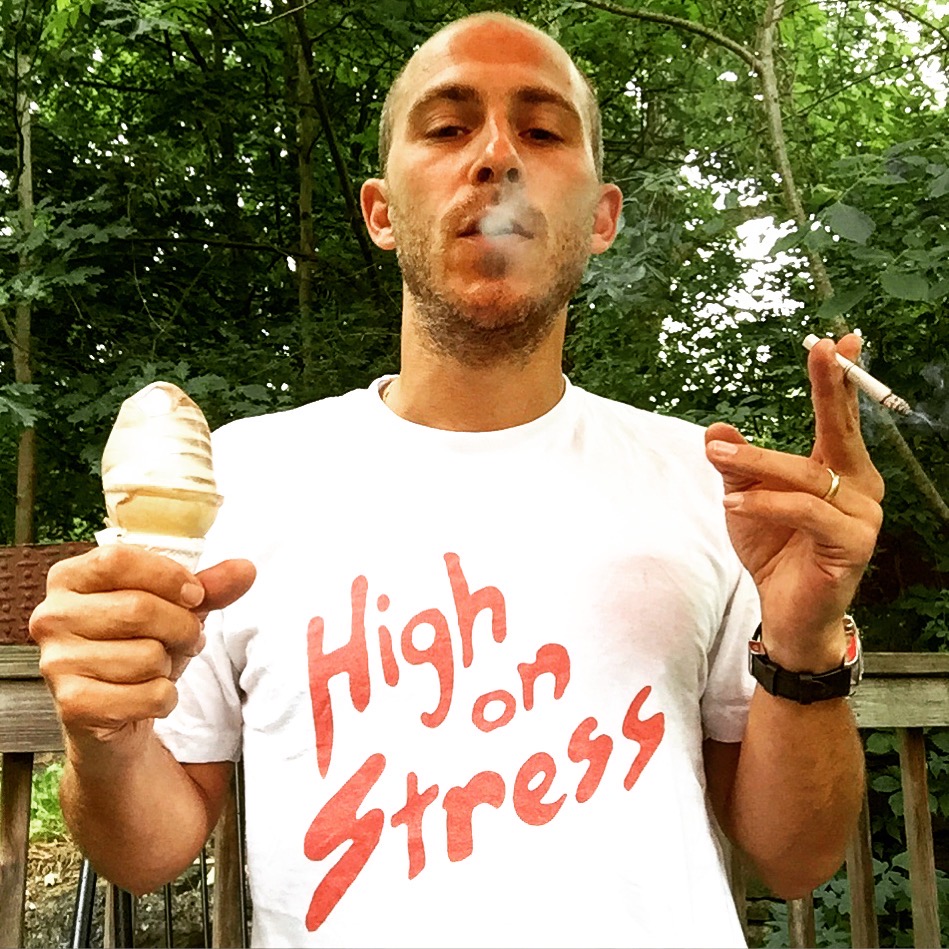 Why were you so drawn to Cigarettes After Sex when you signed them?
Why were you so drawn to Cigarettes After Sex when you signed them?
I don’t think you listen to music, I think you feel music. I think it hits your brain the same way drugs hit your brain. If you like the feeling, you go back to it over and over again, but if you don’t like the feeling, you go find a new dealer.
[Cigarettes] were a band that immediately made me react to the feeling Greg captures in his songwriting.
I think a lot of music works that way. I’m sure that’s why you’re sat here today – because at some point a piece of music made you better understand the world and your place in it.
Everybody in our lives plants flags, for one of two reasons: because they want to claim ownership, or as a path for other people to follow.
To me, the most relevant artists are proud of what they’re doing but have a selfless understanding that they are just a conduit for the music; it is something that moves through them, extends to other people, and it’s their translation and ability that helps enlighten people.
There’s a reason a song becomes a ‘hit’ or something that everybody connects with; it connects with a collective consciousness.
Smells Like Teen Spirit for instance came on the radio in 1992 and everybody who I went to High School with, just outside of Portland Oregon, was like, ‘That thing.’
When working with bands I look for that connective tissue.
[video_youtube id=”sElE_BfQ67s”]
Our job as record labels is to hunt for that, in anticipation. That’s called instinct, luck or talent!
This speaks to what I’m trying to describe: I went to the Metropolitan Museum of Art in New York, to see an exhibit of Van Gogh’s sketches of trees – just pencil drawings. I spent three hours looking at these sketches that were so beautiful and equally captivating.
When I left the museum and walked into Central Park, the trees actually looked more like Van Gogh’s than they looked like trees.
“An artist’s ability to translate the intangible to the tangible… that to me is the nature of genius.”
There’s something about Van Gogh’s ability to translate, even in a pencil sketch, that made me better understand trees, certainly from his perspective. Great art is very specific, and it tells you exactly how to feel; it leaves little room for ambiguity.
An artist’s ability to translate the intangible to the tangible, creating that bridge, a completely clear path – that to me is the nature of genius.
The nature of what we do as labels is: How do we simply nurture the process to help artists build a better bridge?
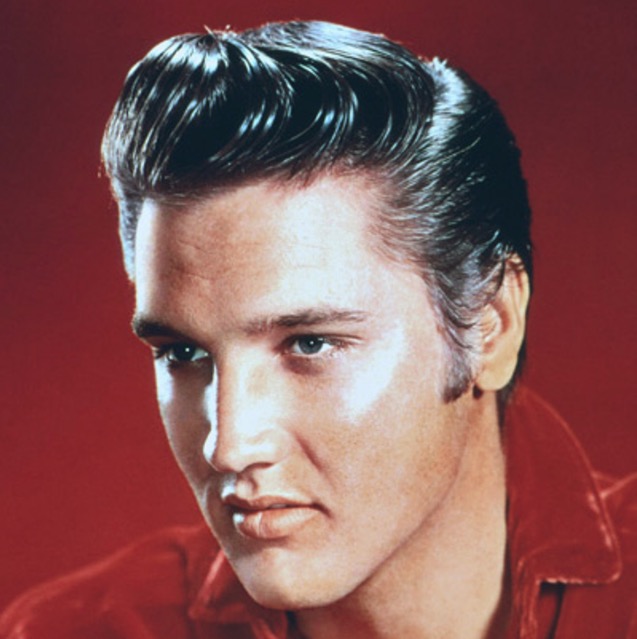 You speak about music in quite emotional terms. When did music first stir an emotion in you?
You speak about music in quite emotional terms. When did music first stir an emotion in you?
My father had an underground radio station in Seaside, Oregon when he was a teen. He had all the 45s he would play on this station in our house growing up – there were two boxes of them, and I still have them.
When I was young, I remember him putting those records on and me having this big reaction to it regardless of what it was. Maybe I was too young to care about good, bad, relevant, etc… John Denver, Buddy Holly, Elvis Presley, or Roger Whittaker – I didn’t make a distinction between what I liked or didn’t like. I was just fascinated by it all.
My brother and I would sit there with a tape recorder from RadioShack for hours and hours calling request lines trying to record songs. That’s amazing to me now – that the value of music in our lives was so high we’d spend hours just trying to get one song. Today it’s a bit of a different process.
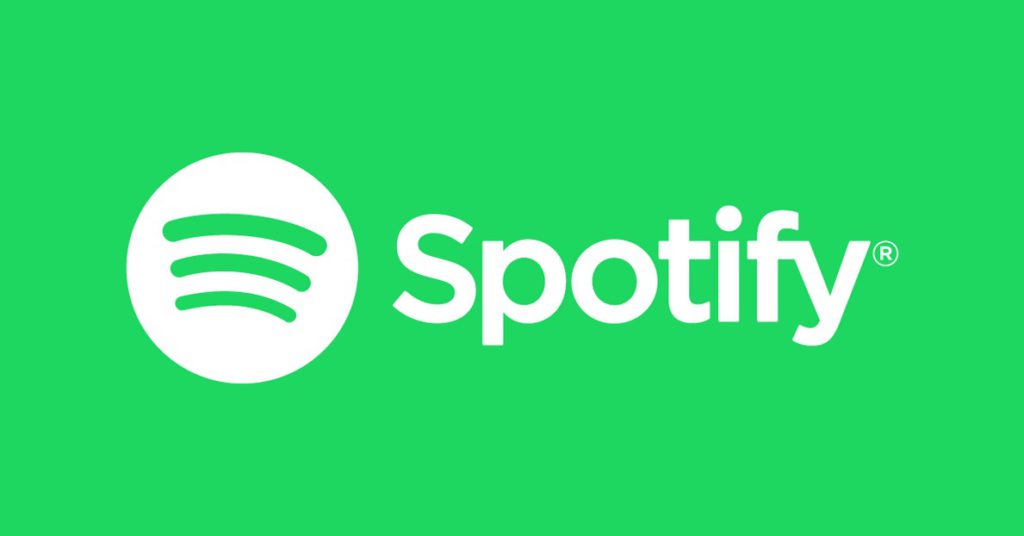 Do you think the fact music is no longer so rare has devalued it?
Do you think the fact music is no longer so rare has devalued it?
No. I think it’s just a different kind of value; how people are valuing the world in general now is just different.
The whole world is moving to a platform where you pay a monthly subscription [fee] to access everything. Sooner rather than later, all entertainment will be in relation to streaming, with the only real question of who you pay that fee to for the service.
For my parents and my grandparents, the idea of ownership was paramount; your home, your car, all these different things.
For me and my generation, that was still there but increasingly less so. And for the generation now coming up, I don’t think ownership is anywhere near as important as experience; the idea that you want access to everything, as immediately as possible, for as little as possible – if not free.
You were born in Portland, Oregon – and grew up in the middle of the grunge scene. How old were you when you started the band?
When I started the first band I was 20; I’d dropped out of college moved to Denver and then to New York with the intention of starting a band.
I was living in Williamsburg because it was one of the cheaper places to live at the time. I was waiting tables, trying to feel my way through what it was that I wanted and needed out of life.
Why did you drop out of college?
I was an English major with an emphasis on poetic analysis. I remember one day I worked out a cost analysis of how much I was paying for all these classes, many of which I wasn’t attending, and I felt an intense pull to something else. I didn’t know what that was, but I knew it wasn’t to academia.
I moved to Denver, lived with my friend Patrick and worked for a baseball team, and then moved to New York with the sole intention of, somehow, breaking into the arts. Music seemed like the best way to potentially make a living doing it – there didn’t seem to be many ways to make a living just writing poetry.
Did your father, who was once himself a radio DJ, support you going into the music business?
I don’t think he was remotely pleased I dropped out of college and went to New York. He didn’t think it was a wise decision.
Is he proud of his son now?
I think so – you’d have to ask him. I don’t think he or my mother would say they quite understand all of this, why I do it.
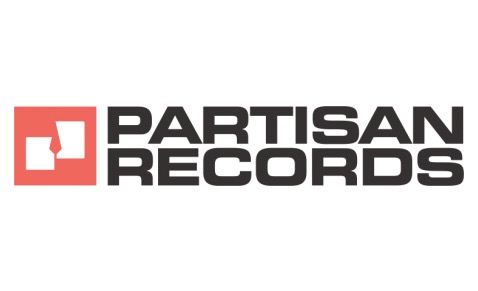 How do you make the bridge between being an artist and a label boss? You’ve come from one side of the industry to become a record company.
How do you make the bridge between being an artist and a label boss? You’ve come from one side of the industry to become a record company.
Probably one of the struggles I have is I don’t really see a distinction between my work – this label – and my life, and I purposefully want it that way.
When you’re in the right harmony, your work should be your life. I’ve never understood doing a job eight, nine or ten hours a day just to get a paycheck to fund your ‘home life’. To me, that seems strange, but it also is a privileged notion, though I’ve had my fair share of jobs done for the paycheck.
How I view the world and feel about things, the business is just a natural extension of that, just as much as our artists’ music is just a natural extension of them.
“I’ve never understood doing a job eight, nine or ten hours a day just to get a paycheck to fund your ‘home life’.”
I’ve come to find that many of my failings I experienced as a working musician, I’ve become increasingly aware of as [the boss] of a label, working with artists.
Increasingly, it’s the employees that I invest in. I see no difference in nurturing an artist as to nurturing an employee. I never want someone to come to work just to have ‘that job’; I want them to be entrepreneurial, to have their own dreams and visions.
If you do your job right as a manager, you almost put yourself out of a job. I never want to have someone in a role where I could do the job better than them; I want people who can do the job better than me and to nurture them to be the best versions of themselves. By embracing my weaknesses and the things I’m not inherently good at, I find those talented strengths in others.
Why did you start a record label?
The simple answer is because my business partner, Ian Wheeler, came to me. He was a fan of my band, we’d just finished a record, and he said, ‘Why don’t we put it out?’
I thought that was a terrible idea, but then the more we talked about it, the more I thought, If we can work with these certain artists, maybe it makes sense. Romanticism is absolutely another word for ignorance.
I disagree with you! Romanticism is a fuel, not to be mixed up with utopia – that’s a recipe for disaster. Romanticism creates fire and drive.
Yes, it can do that, and it can fuel the best of things. I’m in many ways a romantic, and I wouldn’t change that, but oftentimes my romanticism has led me down a path that, in retrospect, has led to a wild fire, setting things ablaze… and I’ve been left with the ashes.
What do you want to achieve with Partisan?
That’s a tough question. I used to think that at the end of this life you would see it almost like a book with chapters, all these accomplishments: I had this family, this wife, this kid, this career, I had this label, I signed these bands.
But I don’t think that’s what happens. I think, at the end of this life, if you’re conscious enough, it’s going to be like the moment before you take a vacation – where you’re already anticipating the end of the vacation, and… then the end of the vacation is right there.
I can only imagine the reckoning somebody feels in that moment if they’ve lived a life trying to exploit people for their own gain – I hope that I can look back on what this was, where the journey truly was the destination, and it’ll be something that doesn’t give me a reckoning or fill me with terror.
[video_youtube id=”JhmkM_pXXJA”]
Is pride a dirty word – do you allow yourself to be proud?
Sure. I think being proud is different to being prideful.
What about ‘ambition’ and ‘success’. As a record label, you have to be ambitious and successful, no?
I am ambitious and I do love to work hard. I think in many ways I have a huge fear of not reaching my full potential.
I don’t think you ever fully succeed, or reach your potential, or write The Song, or write The Book. Life is just learning – putting flags down for people to follow, or not.
How do you do something in a manner that is ‘morally right’, from your own understanding, to help people better understand themselves and their life? I’m certainly following flags other people have planted for me.
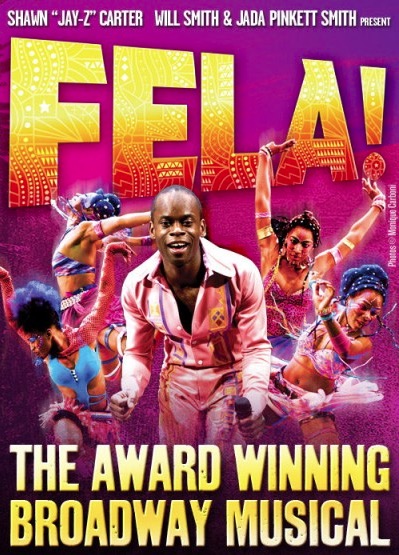 Who were your mentors?
Who were your mentors?
I can’t say I’ve had a lot of music mentors regarding running a label. I had to figure it out to be honest, over the better part of a decade. It was just one foot in front of the other, two steps forward one step back – but you have to make mistakes in life to understand what you don’t want and how you can build towards success.
I was vey fortunate to be allowed to make mistakes, in a business sense, by a few people who just believed in me; who saw something in me that I didn’t necessarily even see in myself. That’s Morgan Margolis [Margolis, Knitting Factory President] and Steven Hendel, who when the label was in its infancy was doing Fela On Broadway, and wanted to license the Fela catalogue for the musical.
Both Steven and Morgan saw something in me they wanted to nurture. So in that way, the mentors I have had have shown me the right way to try and help people; the right way to live, and then being a label boss is just an extension of that.
What’s your definition of success?
I don’t know, to be honest. The moment I get what I want, it’s like sand in my hand – it’s gone again.
You’re eternally unsatisfied. That must be tiring.
It can be tiring having a constant craving, but I don’t think you ever get satiated. I think it’s a lie, the idea that you get THE house, you get THE kids, you retire well… it’s not like that. It’s a constant flow.
I’ve never had a moment, where I’ve thought, ‘Job well done – you’ve really succeeded here.’
You’ve never congratulated yourself? Try it – it helps!
I congratulate the people around me. But [in terms of congratulating myself] I just have a hard time with it. Too much to do.
What values does an independent label need in 2017 or 2018?
First and foremost, good business practices. It is a hugely important thing to just run a sound business – to make sure you’re really upfront and honest and open with the people you work with and for. That’s paramount – the foundation is transparency in every way.
On top of that, it’s nurturing people; empowering them to be the best versions of themselves. You have to understand that someone who’s 22 and just coming into this [industry] could go far and make a much greater label, a more impactful business, utilizing emerging technologies and everything else that’s happening.
“It is a hugely important thing to just run a sound business – to make sure you’re really upfront and honest and open with the people you work with and for.”
That’s when it gets fun and amazing; when people you’ve nurtured accomplish things, and bring into the light what previously you didn’t even see.
I learn from anyone I can, regardless of status, whenever the opportunity presents itself. For instance, this back and forth conversation with someone who’s spent years in this business and created an influential company is enlightening.
It gives me a different perspective. It’s about looking at everybody as an equal, and in the workplace specifically trying to figure out how to move somebody constantly forward.
What do you tell an artist why they should sign to Partisan rather than anywhere else?
I don’t do that. I tell artists that I’m going to put the very best deal in front of them I can – it’s about understanding what they need, and understanding what it is they are trying to accomplish. The deals reflect that.
But it’s not always about the deal. Independents always get outbid by everyone!
That’s true, but what myself and the team offer no one else has. The other part of it is, when we’re signing an artist, I talk to them – I try to figure out, is this somebody I want to invest my time in? Is this somebody whose time I want to be invested in? Do we have a common sense of purpose? Can I do what actually needs to be done based on my understanding of what they’re trying to accomplish?
I would be a fool to go to everybody saying, on every single occasion you are better served by our label than somewhere else, because that’s just not the case.
For certain artists, absolutely – this is a great label and home for them. I know the vision, the thoughtfulness, the people, the quality of work, the amount of care you get here. I know where the value is added. I also know it is a business.
Is the best yet to come?
I certainly hope so. It’s funny; if I think about what I’m trying to accomplish, at the end of this whole thing, it’s probably lying in a hammock on a beach and reading books at my leisure. I don’t want ‘things’ – I just want the freedom to be, kind of, left alone.
What’s the lowest moment of your professional career?
The lowest is when you have a band leave the label that you are truly invested in, people you genuinely have a deep affinity for, and they choose to go somewhere else for any number of reasons.
It’s only happened a few times at [Partisan] and, ultimately, those are the moments it makes me sit back and think, ‘What is it that I need to improve upon so that no-one ever wants to leave this label?’
It makes me understand I have a tremendous amount of work to do to create the kind of label and brand that no-one would leave. I strive for that.
Why are you so excited about the future for Cigarettes After Sex?
I know [Cigarettes After Sex] are reacting. You usually do radio, press, promo, etc… in the hope that it will react. But this is a band where I already know they are connecting. The reaction is there.
Now, it’s about doing the work so this band doesn’t sell 100,000 – 150,000 records, they sell… exponentially more than that across all of these markets. This is why in the age of streaming a hugely important element is repeat listenability. Everybody can take an album or a single for a test-drive now before deciding if they want to buy the car. This is a band that people listen to over and over again, on repeat. They want to buy the car.
If this band ends up being a mid-level successful indie band then we’ve completely failed. Because I know this music is connecting, and will keep on connecting. Are there millions of people out there that will react to this music? Yes. Because I see it happening all the time. Their music is a collective feeling that people want to share in. That is powerful.
What’s your vision for the future of Partisan?
To be able to go to any artist and have a conversation [about signing], and to know they are genuinely best served running through this company – nowhere else. That is what I am trying to accomplish.
It’s what I work towards every day.
I work towards creating a company that can work with any artist – on their terms as much as ours – and have them do better business while reaching more people without compromising, their art, their vision, and their integrity.
Most labels can do relatively similar things on certain levels. But to add true value to an artist, their business, to have them be able to create things they would never do elsewhere because of the work you’ve done around them – that’s what I love.
[video_youtube id=”Qr5AIKRPIHo”]
Excellence is important.
Absolutely. I hate falling short of my potential. I’m terrified of it, in fact – of repeating mistakes.
When I read books about innovators like Benjamin Franklin, Steve Jobs, Mark Twain – I feel totally inferior. I’m fascinated by Elon Musk for instance. He’s three years older than I am and he’s created four billion dollar companies, is working towards eventually getting to Mars with SpaceX on rockets he designed, creating global satellite internet, running Tesla, making solar and battery albeit sustainable energy applicable, digging tunnels with the Boring Company – and he takes so much shit because he’s a visionary.
People like that to me are endlessly fascinating and endlessly inspiring. On days when I get up and feel exhausted, I take a step back and take a look at people like an Elon Musk – or people such as yourself who’ve created an entire businesses with many moving parts – and I think, ‘What do I have to complain about?’
If someone asked me what my single greatest motivating factor is, I’d probably just say fear; the fear of falling short of my own potential. Inevitably though, that is what will happen.
No. Allow me to be a therapist for a second: your biggest motivation is love. People think you’re weak when you say that. But you do this because of love – love of music, love of achieving, love of your staff, and love of what you do.
You’re completely correct. I tell my staff I love them all the time – I tell bands I love them all the time! Because genuinely I do. It’s not a shameful word, it’s a word I completely embrace.
Fear for me, though, oftentimes comes from the place of love, from being overly human. When I’m in a really tall building, I have a complete fear of heights. But my fear of heights isn’t about being in a tall building, it’s the fear that I actually might jump off – this strange idea of just throwing myself off the building for some reason.
And in business, I think there’s that fear too; that I might throw myself off the building at any given moment.
That’s because underneath it all, we’re all insecure, no?
I think it’s true that in our lives we aren’t judged on our successes and failures as much as we’re judged on how we choose to deal with our insecurities.
Some people deal with their insecurities in an elegant, beautiful way – a way which helps people better understand themselves; a way that’s open, honest and real. When artists do that, which they do all the time, it’s completely empowering for the people who may be dealing with the same insecurities
And then there’s people like some of our political leaders, who deal with their insecurities in a way that’s prideful and exploitive; they’re never in the wrong, they’re infallible.
I’ve always been attracted to the people who openly embrace their insecurities and deal with them in a way that is beautiful – that is real strength – that is human.